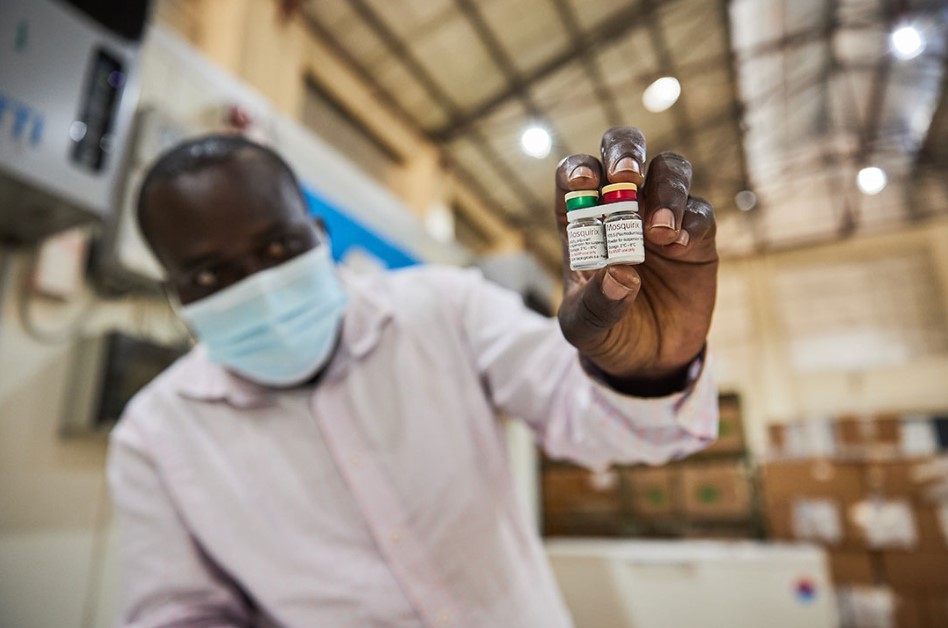- Original Article
- https://www.gavi.org/news/media-room/gavi-opens-applications-malaria-vaccine-rollout-support
July 20, 2022
Gavi.org

Geneva, 20 July 2022 – The world’s first-ever mass vaccination against malaria was brought a step closer today as Gavi, the Vaccine Alliance opened a process for countries to apply for funding and support to roll out the new vaccine.
The opening of the application window follows the WHO’s recommendation for wider routine use of the RTS,S/AS01 malaria vaccine in October 2021 and a subsequent decision by the Gavi Board in December 2021 to approve an initial investment of US$ 155.7 million for the 2022–2025 period. Malaria vaccination was additionally supported by a US$ 56 million investment through a “de-risk” agreement with manufacturer GSK and innovative financing partner MedAccess. In recognition of the technical requirements of rollout and the need to provide tailored support to countries, a first application window, which closes 13 September, will be limited to the three countries that have taken part in the vaccine’s multi-year pilot programme: Kenya, Ghana and Malawi.
A second window, which opens at the end of the year and closes in January, is open to other countries with moderate to high transmission of Plasmodium falciparum malaria. These countries can already submit expressions of interest (EoIs) during the first funding window to signal interest and provide them with the needed support to submit quality applications.
“The work towards a malaria vaccine has been long and hard,” said Gavi CEO Dr Seth Berkley. “Today we begin a new chapter: alongside existing interventions, this new tool will allow us to save more lives in countries hit hardest by this killer disease.”
The introduction of the RTS,S/AS01 malaria vaccine builds on successful implementation pilots and will be the first ever widespread malaria vaccination programme. Alongside currently recommended malaria control interventions – and alongside these existing protections, it could help drive down child mortality in Africa, the continent that bears the heaviest malaria burden. More than 260 000 African children under the age of five years old die from malaria annually, and six Gavi-eligible countries account for 50% of global mortality.
“One child dies of malaria every minute in Africa, and we must do everything possible to stop this trend. The new funding opportunity will make the world’s only malaria vaccine more accessible to African children. If delivered to scale, the vaccine will help to prevent millions of cases of malaria, save tens of thousands of lives and ensure a brighter future for the continent,” said Dr Matshidiso Moeti, WHO Regional Director for Africa.
Alongside the World Health Organization (WHO) announcement of finalization of the vaccine allocation framework to facilitate transparent and equitable allocation of limited vaccine supplies and UNICEF’s procurement agreement for the RTS,S vaccine, Gavi’s application guidelines (found here) are based on targeted support that will grow as volumes of available doses increase through an expected ramp-up in production.
“A vaccine has been the missing piece in the malaria toolkit since UNICEF first took up the fight against malaria decades ago, making this very welcome news,” said Etleva Kadilli, Director of UNICEF's supply and procurement headquarters. “We look forward to working with Gavi, WHO and other partners to bring this vaccine to the children who need it.”
The Alliance and other partners will also work with countries to provide orientation and technical assistance to ensure quality planning and country readiness in view of future application windows. Applications will be reviewed by the Gavi Independent Review Committee (IRC), and successful applicants will then have a period of implementation planning support before rollout.

